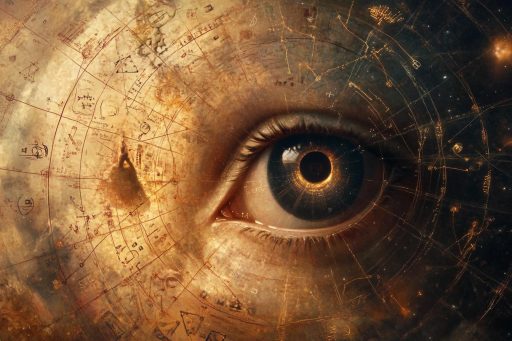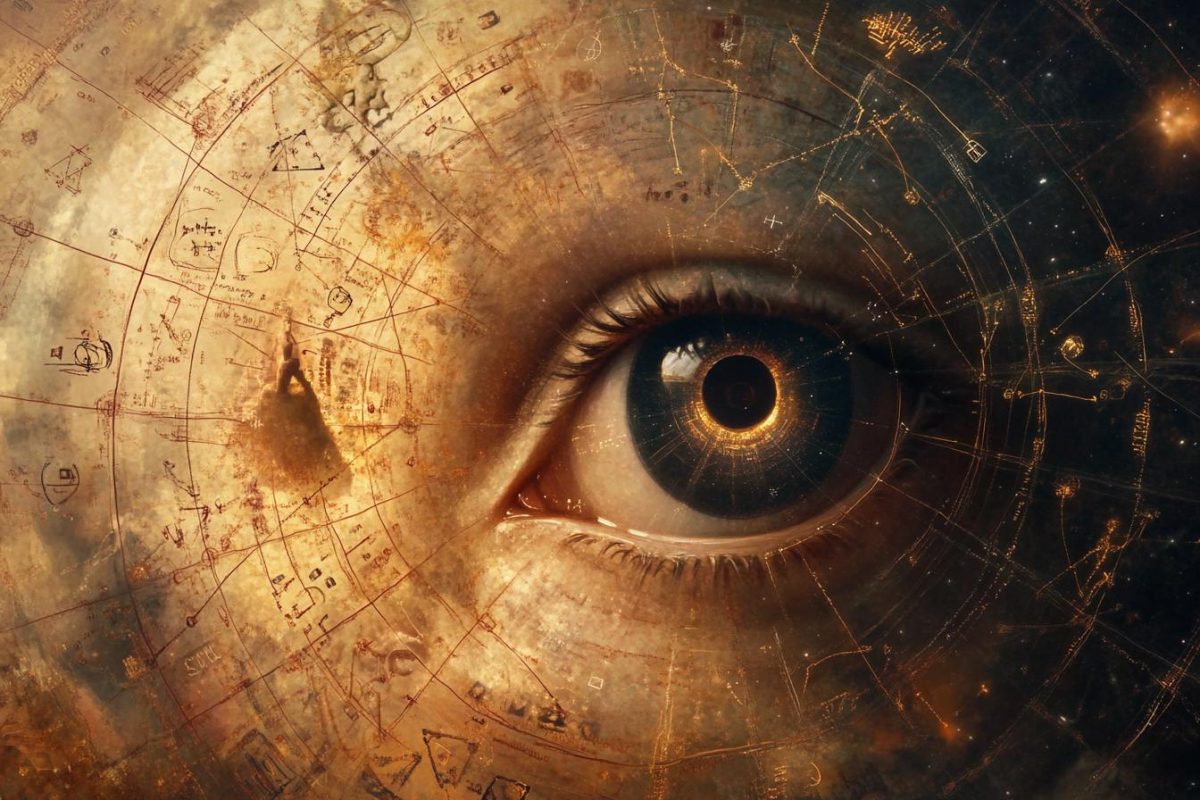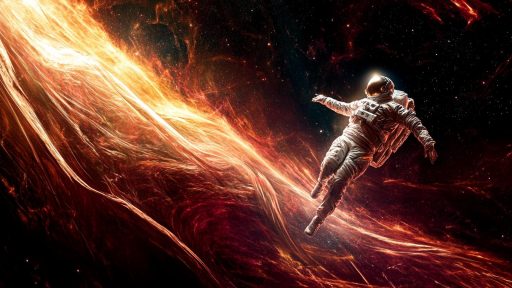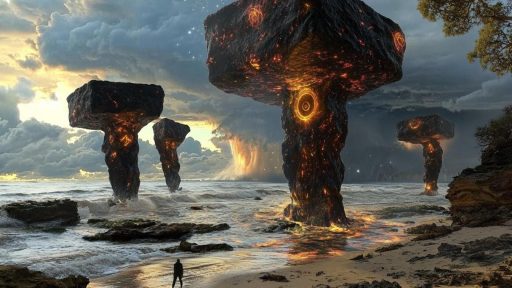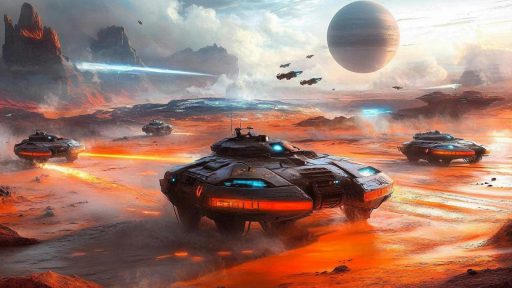
The cosmos is vast, mysterious, and filled with questions we’ve only begun to ask. While mainstream science provides some answers, countless theories lurk in the shadows—ideas so wild they seem impossible, yet tantalizing enough to consider. These cosmic concepts challenge our understanding of time, space, and reality itself. Could one—or many—of them actually be true?
The Universe Is a Hologram

Some physicists believe our three-dimensional world might be a projection from a two-dimensional surface, much like a hologram. This theory suggests that everything we experience—space, time, even consciousness—is encoded on the outer edges of the cosmos. If true, reality as we know it may be more illusion than substance. The implications stretch far beyond science and into the realm of philosophy.
Black Holes Are Gateways to Other Universes

Rather than being cosmic death traps, black holes might serve as portals to other universes. This idea stems from theories that black holes could connect to “white holes” elsewhere, spewing matter into a parallel realm. If so, our universe could be part of a vast multiverse network linked by these gravitational maelstroms. Could entering one mean beginning anew in an entirely different cosmos?
The Universe Is Conscious

Some scientists and philosophers argue that the universe itself might be a conscious entity. This isn’t about a god-like figure, but rather consciousness emerging from the complexity of the cosmos. If the universe is aware of itself, it might subtly influence how matter and energy behave. Could our thoughts be more connected to the cosmos than we ever imagined?
We’re Living in a Simulation

This popular theory suggests that our entire universe is an advanced computer simulation, perhaps created by beings from a higher reality. Strange mathematical patterns in the fabric of space-time have fueled speculation that we’re just digital avatars in a coded cosmos. If our universe behaves like a program, then what—or who—is behind the keyboard?
Dark Matter Is an Alien Superstructure

Dark matter makes up most of the universe, yet we can’t see or touch it. One wild theory posits that it’s not just exotic particles—but the infrastructure of advanced alien civilizations so advanced, they’re indistinguishable from nature. If dark matter is technology, we might be living inside someone else’s creation. Perhaps we’re surrounded by a cosmic city too advanced for us to perceive.
The Universe Recycles Itself

Instead of a single Big Bang and an eventual heat death, some scientists propose a “cyclic universe” model. This theory suggests that the cosmos undergoes endless cycles of expansion and contraction, with each universe giving birth to the next. If true, everything that exists now has existed before—and will exist again. Time might be less of a straight line and more of a never-ending spiral.
Quantum Entanglement Is the Universe’s Nervous System

Particles can be connected across vast distances, instantly affecting one another—a phenomenon known as quantum entanglement. Some believe this isn’t just a weird quirk but part of a deeper, universe-wide web of communication. If every bit of matter is subtly linked, then the universe may function like a brain, with entangled particles as its neural pathways. Could this be the key to unlocking hidden universal intelligence?
Time Doesn’t Actually Exist

Some physicists argue that time is an illusion—our brains’ way of organizing events. The laws of physics work just as well whether time moves forward or backward, hinting that time might be a mental construct. If so, past, present, and future may all coexist in a static cosmic block. What we perceive as time passing could simply be our consciousness moving through it.
Aliens Created the Universe

A controversial yet intriguing theory proposes that advanced extraterrestrials created our universe in a lab. These alien “cosmic engineers” might have spawned universes as experiments or simulations to test different laws of physics. Our finely tuned universe could be the result of cosmic trial and error. If true, we might be living in someone else’s science project.
The Universe Is Alive

Beyond being conscious, some theorists suggest the universe behaves like a living organism. It grows, evolves, and responds to changes, much like a cell or ecosystem. Galaxies could be its organs, dark matter its circulatory system, and cosmic energy its lifeforce. Are we simply microbes floating in a living, breathing cosmic body?
Parallel Universes Constantly Interact with Ours

The multiverse idea gets even weirder when you consider that other universes might not just exist—they might overlap or brush against ours. Some anomalies, like déjà vu or quantum randomness, could be signs of these interactions. If two universes occasionally bleed into each other, what strange phenomena might be slipping through the cracks?
The Universe Has No Beginning or End

Despite the Big Bang model, some scientists argue that the universe has always existed and always will. In this view, creation is a myth—there was no origin point, just an eternal existence shifting between states. It challenges the idea that everything must have a starting point. Could infinity be the true nature of everything?
Reality Is Created by Observation

Quantum mechanics suggests that particles don’t settle into a state until they’re observed. Some take this to the extreme, claiming the universe itself requires consciousness to exist. Without an observer, nothing becomes real. Does the cosmos exist independently—or only because we’re here to witness it?
The Universe Is Trying to Communicate with Us

From fast radio bursts to repeating signals from deep space, some believe the cosmos may be sending messages. Whether from intelligent life or the fabric of the universe itself, these unexplained transmissions hint at a deeper purpose. Are we listening closely enough—or have we been missing the signs all along?
Gravity Is a Cosmic Illusion

One of the wildest ideas suggests gravity isn’t a fundamental force but a side effect of deeper, hidden dimensions. This theory implies that what we feel as gravity might actually be a leak from another universe or a distortion in a cosmic membrane. If gravity isn’t real in the way we think, our understanding of space-time could collapse entirely. Are we floating in more ways than one?
When the Stars Whisper Back

The universe may be more than a silent expanse—it could be a mirror of our deepest questions, reflecting back riddles instead of answers. These wild theories push the boundaries of what we think we know, turning certainty into speculation and science into mystery. Whether or not they’re true, they remind us how little we truly understand about the cosmos. And perhaps that mystery is the most profound truth of all.

